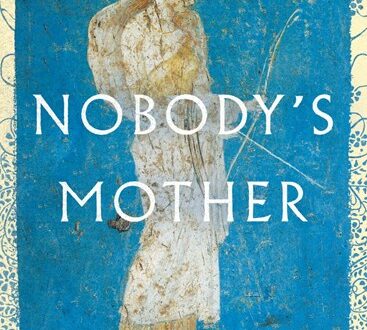
Choosing Insignificance with Elizabeth and Joseph
“I want to write a book, but I don’t want anyone to read it.” This declaration to my husband describes my angst with writing, platforms, and my significance.
Almost every time I open the Bible, I see a lesson or an application I want to share. My mind is filled with devotions, questions, and ideas. But in order for my messages to be read, they must be communicated somehow. So, I’ve tentatively put my words into public spaces, gradually increasing my boldness. I’ve added a few hashtags along the way and expanded to more platforms.
Yet even as I’m growing more comfortable with this, I’m reticent. After all, why would anyone want to read my words? And what do I have to say that hasn’t already been said? I hesitate to hit send, I second-guess myself, I wonder if anyone will be offended, unfriend me, or criticize.
Then after a post hits cyberspace, I check to see how many likes or comments I have or obsess about how to promote my work. I keep striving—striving to put words on a page, to say things poetically, market affectively, publish more.
I walk the line between attempting to lift up Jesus and sharing myself in the process. How do I point to Jesus when everything has my name, photo, bio, and contact information on it? How do I build a platform for myself so that my words will be read while making myself insignificant so as to be a conduit for my Savior?
As I pause to contemplate Jesus’s coming during Advent, two characters in the Christmas story provide practical guidelines for how to navigate this tension.
Elizabeth, Mary’s much older cousin, prayed for years for a child and lived with the reality of her closed womb. Now that she is miraculously pregnant in her old age, she deserves some attention, some pampering, the right to celebrate her first child. It would be understandable if she wanted recognition and fame. After all, a pregnant senior citizen makes a worthy headliner.
Joseph, Mary’s fiancé, is a man advantageously placed in a patriarchal world. He can legitimately have the last word and make all the decisions. He may divorce Mary because he knows the child she carries is not his own. Since culture demands that he uphold honor at all costs, it would make sense if to avoid shame, he declared his innocence and walked away.
Instead, both Elizabeth and Joseph choose insignificance. Elizabeth declares that Mary’s child is greater than hers. Shining the spotlight on the younger woman and her baby, she exclaims, “Blessed are you among women, and blessed is the child in your womb! But who am I that the mother of my Lord should come and visit me?” (Luke 1:42–43).
Joseph disregards his place in society and his future plans in order to promote Mary’s mission. He marries her, assumes the fatherhood of her child, leaves his carpenter shop, and protects mother and child. He too chooses to defer to Mary and the savior within her: “When Joseph awoke from sleep he did what the angel of the Lord told him. He took his wife, but did not have marital relations with her until she gave birth to a son, whom he named Jesus” (Matthew 1:24–25).
Both laid aside their rights, took a backseat, became the side-story, a supporting actor so that Jesus would be born and get all the attention. I see Elizabeth and Joseph practicing a multiplication mindset. They desire to promote Mary rather than themselves. And in doing so, they also become an important part of the story even as they shine the spotlight on others.
Unlike Elizabeth and Joseph, I tend to operate from scarcity—a fear of not having enough. I’m afraid that if I share the words of another, I will not be heard; if I lift up another, they will take my opportunities. When I write from this mindset, I promote myself so that I will not miss out on attention or readers, not so that Jesus is honored.
However, my fear, while understandable, is unfounded. All through my writing processes, many have cheered me on, shared resources, given free advice, and inspired me with their designs and formats. They want me to get my message into the world. They show me that there is space for all our words. When we shine the light on each other, all our stories get told, and Jesus ultimately gets the attention he deserves.
So, with Elizabeth and Joseph, I choose insignificance. “[Jesus] must become more important; I must become less important” (John 3:30).
How can you walk the fine line between sharing yourself and promoting others?
In what ways is God asking you to become more insignificant that he might become greater?



